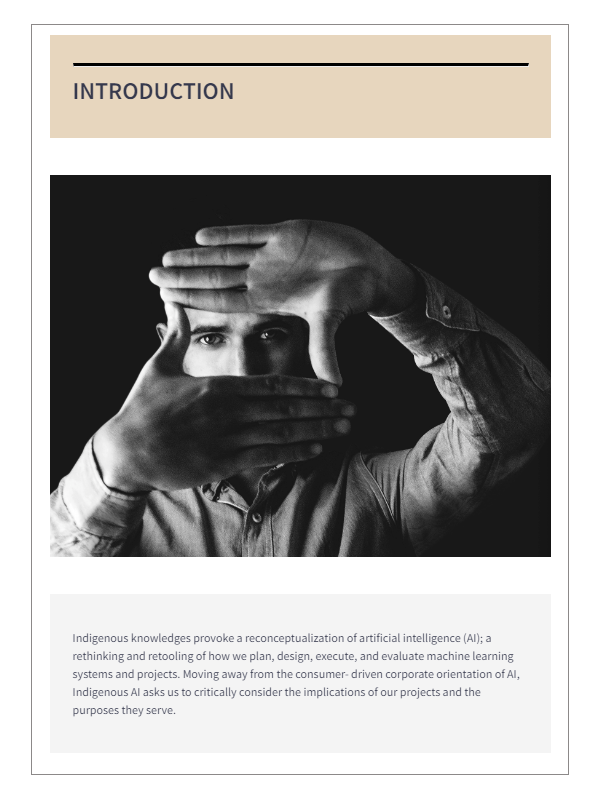By: Kathleen Sandusky
18 Jun, 2024

Artificial Intelligence has captured the world’s imagination and is rapidly becoming a key area of training for students in all disciplines, particularly for those in STEM fields.
But long before Western-led traditions in science and technology dominated academia, communities around the world thrived using rich systems of Indigenous knowledge-keeping and sharing, which continue to this day.
These worldviews have, to this date, been largely omitted from contemporary academic training in Canada and worldwide, the twin legacies of colonialism and racism leading to the elision and distortion of thousands of years of Indigenous knowledge.
To help address this gap for CIFAR-supported academic researchers, a series of free online certificate-granting courses are now required for all participants in AI training programs supported by the Pan-Canadian AI Strategy.
Titled Indigenous Perspectives in AI, the course is also available online for the public in French and English and includes a course guide for instructors who wish to integrate it into their own curricula.

The free self-paced independent learning course is offered at three levels of education (high school, undergraduate, and postgraduate) and takes approximately two hours to complete. It was commissioned by CIFAR and developed by Ridge Road Training & Consulting, Inc., co-authored and co-constructed by a team of Indigenous and non-Indigenous educators.
“This course fills an important training gap for people entering AI and STEM fields,” says Elissa Strome, Executive Director of the Pan-Canadian Strategy at CIFAR. ”Conventional Western-led perspectives in tech and academic research tend to prioritize technical efficiency and profit but can overlook other critical aspects such as the impacts on the environment and wider community well-being. This course will help trainees in AI acquire a better-rounded knowledge of the potential risks and opportunities presented by AI for people and the planet.”
Indigenous Perspectives in AI features video teachings by Indigenous knowledge-keepers from Inuit, Métis, Nak’azdli Whut’en, Haudenosaunee and Anishinaabe traditions. Rich in information and practical case studies, it emphasizes Indigenous worldviews that teach the importance of a deep connection to the environment, holistic thinking, and the interdependence of all living things.
“This course opened my eyes to a new way of thinking about project development that was not taught in any of my typical STEM university courses.” – Kate Nimegeers, AI4Good Lab alumnus
The course also teaches the importance of building reciprocal and respectful relationships with Indigenous communities, ensuring that AI projects are developed in ways that are culturally sensitive and that genuinely address the needs and values of these communities.
“This course opened my eyes to a new way of thinking about project development that was not taught in any of my typical STEM university courses,” comments Kate Nimegeers, a student of the AI4Good Lab program who took a pilot version of the course in 2023. “I feel so privileged to have been given the opportunity to learn about practical ways that Indigenous knowledge can be integrated into my work.”
Adds Nimegeers, “The importance of the principle of reciprocity stood out as a key takeaway from the course. Many AI projects directly benefit from knowledge shared by Indigenous people, so it is easy to see why researchers and developers seek to collaborate with those knowledge keepers. However, if the project does not directly benefit the people whose knowledge is being used, then it does not follow the principle of reciprocity and may be causing harm to the communities who made the project possible in the first place.”
Interested in taking the course? Enroll for free online.